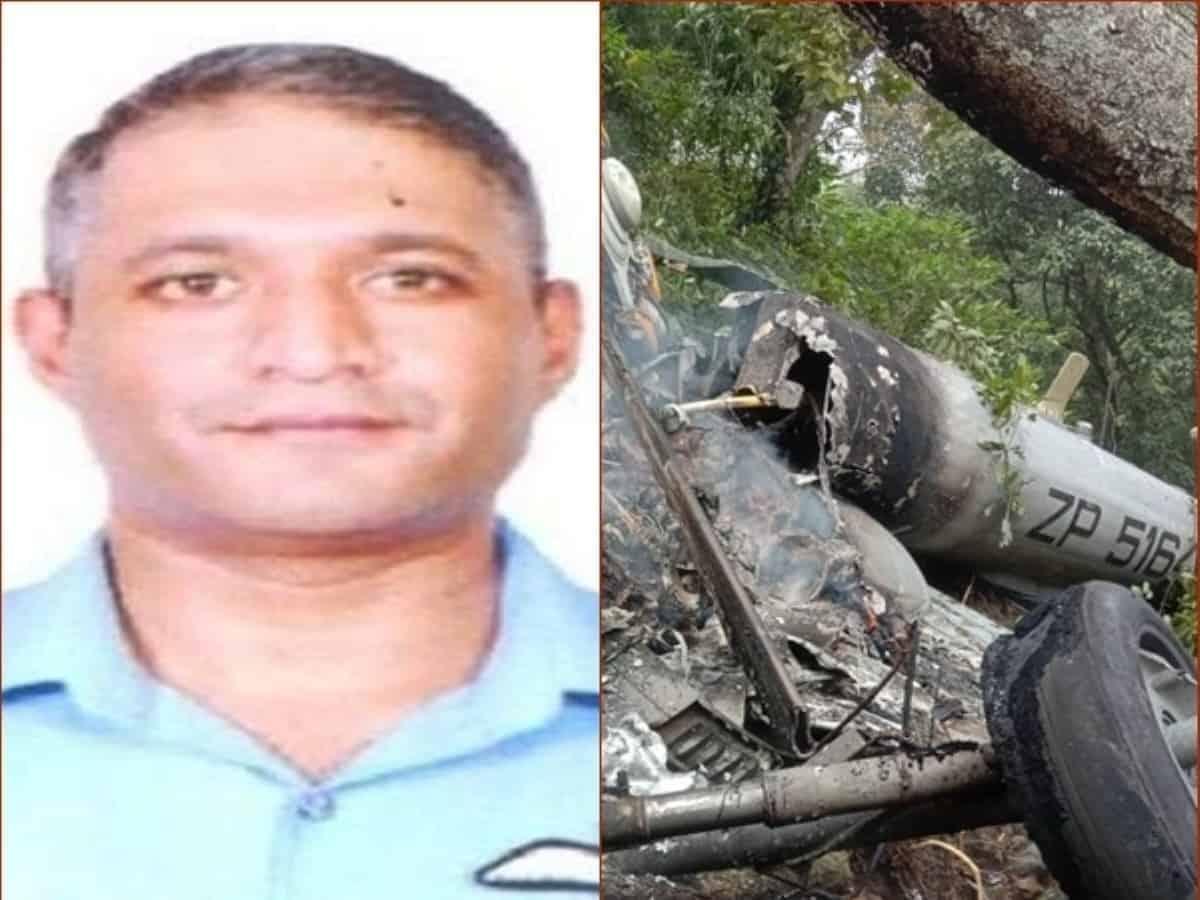Chennai: Group Captain Varun Singh, the Directing Staff at the Defence Services Staff College in Wellington, Tamil Nadu, and the lone survivor of the ill-fated Mi-17V5 helicopter that crashed near Coonoor on Wednesday, killing 13 persons on board, can share details of the flight once he recovers.
A receipient of Shaurya Chakra gallantry award, Singh, who is undergoing treatment at the Military Hospital in Wellington, was one of the 14 passengers on board the chopper which also carried Chief of Defence Staff General Bipin Rawat and his wife Madhulika Rawat.
While the helicopter’s black box and forensic emanination of the remains of the chopper and other aspects would reveal the details about the accident, Singh can give a first hand account of the last minutes of the flight.
It is learnt that Singh was recently promoted from Wing Commander to Group Captain and was a recent joinee at the Defence Services Staff College (DSSC).
A pilot in the Light Combat Aircraft (LCA) Squadron, Singh on October 12, 2020 was flying a system check sortie in LCA, away from its parent base, after major rectification of Flight Control System (FCS) and pressurisation system (life support environment control system).
According to an official statement, during the sortie, the cockpit pressurisation failed at high altitude. However, Singh correctly identified the failure and initiated a descent to lower altitude for landing.
While descending, the Flight Control System failed and led to total loss of control of the aircraft. It was an unprecedented catastrophic failure that had never occurred.
There was a rapid loss of altitude, with the aircraft pitching up and down viciously, going to the extremities of G limits.
Despite being in extreme physical and mental stress in an extreme life-threatening situation, he maintained exemplary composure and regained control of the aircraft, thereby exhibiting exceptional flying skill.
Soon after, at about 10,000 feet, the aircraft again experienced total loss of control with vicious manoeuvring and uncontrollable pitching. Under such a scenario, the pilot was at liberty to abandon the aircraft.
Faced with a potential hazard to his own life, he displayed extraordinary courage and skill to safely land the fighter aircraft.
This allowed an accurate analysis of the fault on the indigenously designed fighter and further institution of preventive measures against recurrence.
Singh was awarded the Shaurya Chakra for his high order of professionalism, composure and quick decision making. Even at the peril to his life, he not only averted the loss of an LCA, but also safeguarded civilian property and population on ground.

